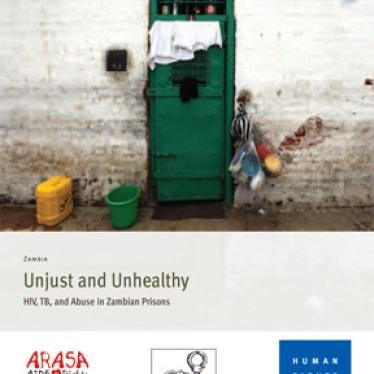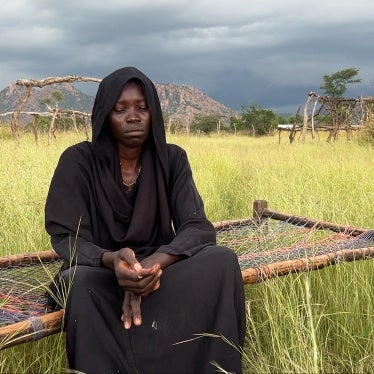Daniel Ng'etich and Patrick Kipng'etich Kirui are not crooks or con artists, but they have now spent more than a month in Kenya's Kapsabet prison. They will spend another seven months there if the magistrate's orders stand. Their "crime"? Infectious with tuberculosis, they were found to be a threat to their families and community. The unanswered question: do they present any greater threat than the more than 130,000 other Kenyans who become infectious each year?
Kenya has one of the highest rates of tuberculosis in the world, with more than 350 new TB cases and 200 TB-related deaths every day. But it is also the first country in sub-Saharan Africa to have achieved global targets for detecting and treating cases. The detention of these two men tarnishes this accomplishment, and the country's record on TB control threatens to distinguish itself in a much less encouraging way.
Citing lack of food, the need to travel to search for employment, and negative side effects from the medications, Ng'etich and Kipng'etich Kirui, like many patients around the world, struggled to achieve perfect adherence to the strict treatment required for effective TB therapy. But if Kenya is going to imprison everyone with TB who is not strictly adherent, they'll need to add tens of thousands of more prison cells - and significantly expand TB testing and treatment facilities.
The sad truth is that patients get little support to help them stick to a long and difficult treatment. While this can put others at risk of TB infection, patients who don't stick to their treatment actually pose less of a risk to the public than the large number of individuals who don't know they are infectious, or who aren't getting any treatment because of a lack of appropriate screening, diagnosis, and treatment facilities. If imprisonment is the answer, who should be jailed for this failure of the health system to identify and support patients?
In accordance with internationally agreed upon best practices for the treatment of TB, Kenya's Public Health Act states that an individual's freedom of movement may be restricted for the purpose of treatment or protecting the public health, but that such restriction is justified only when it is strictly necessary and in the least restrictive possible way. The detention of TB patients rarely meets these requirements. Even when isolation is necessary, it can be done at home, and it should only be as long as the patient is infectious - typically closer to one month than eight.
The control of infectious disease can be a complicated, messy, and frustrating endeavor. Whether it's TB, SARS or HIV, there is always the desire to find a "silver bullet" that seems simple and effective. Locking up two TB patients - whether in a prison, or in a hospital isolation room - may seem to some like a solution, but in reality it will not improve the public health and it can set a dangerous precedent of arbitrary detention and injustice.
Patients all over the world are currently being treated in community-based programs that both protect public health and uphold human rights. These methods have not only been proven effective, they are also less expensive than isolating TB patients in prisons or hospitals. Most important, they do not inspire fear of TB testing and drive people away from screening and treatment.
A few months ago I wrote in the East African of Kenya's "impressive commitment" to combating HIV and TB and urged that this commitment be extended to prisons. Locking up TB patients for treatment was not what I had in mind. A more effective, and rights-respecting, approach is needed.
Joseph Amon is the director of the Health and Human Rights Division at Human Rights Watch.







